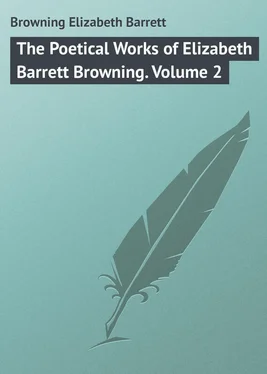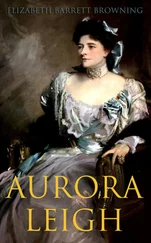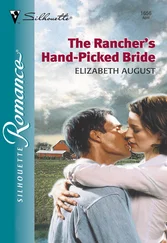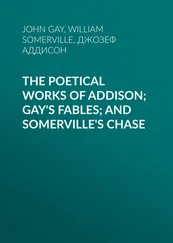Elizabeth Browning - The Poetical Works of Elizabeth Barrett Browning. Volume 2
Здесь есть возможность читать онлайн «Elizabeth Browning - The Poetical Works of Elizabeth Barrett Browning. Volume 2» — ознакомительный отрывок электронной книги совершенно бесплатно, а после прочтения отрывка купить полную версию. В некоторых случаях можно слушать аудио, скачать через торрент в формате fb2 и присутствует краткое содержание. Жанр: Поэзия, foreign_prose, foreign_poetry, на английском языке. Описание произведения, (предисловие) а так же отзывы посетителей доступны на портале библиотеки ЛибКат.
- Название:The Poetical Works of Elizabeth Barrett Browning. Volume 2
- Автор:
- Жанр:
- Год:неизвестен
- ISBN:нет данных
- Рейтинг книги:5 / 5. Голосов: 1
-
Избранное:Добавить в избранное
- Отзывы:
-
Ваша оценка:
- 100
- 1
- 2
- 3
- 4
- 5
The Poetical Works of Elizabeth Barrett Browning. Volume 2: краткое содержание, описание и аннотация
Предлагаем к чтению аннотацию, описание, краткое содержание или предисловие (зависит от того, что написал сам автор книги «The Poetical Works of Elizabeth Barrett Browning. Volume 2»). Если вы не нашли необходимую информацию о книге — напишите в комментариях, мы постараемся отыскать её.
The Poetical Works of Elizabeth Barrett Browning. Volume 2 — читать онлайн ознакомительный отрывок
Ниже представлен текст книги, разбитый по страницам. Система сохранения места последней прочитанной страницы, позволяет с удобством читать онлайн бесплатно книгу «The Poetical Works of Elizabeth Barrett Browning. Volume 2», без необходимости каждый раз заново искать на чём Вы остановились. Поставьте закладку, и сможете в любой момент перейти на страницу, на которой закончили чтение.
Интервал:
Закладка:
"And this I meant to fear —
Her bower may suit thee ill;
For, sooth, in that same field and tent,
Thy talk was somewhat still:
And fitter thy hand for my knightly spear
Than thy tongue for my lady's will!"
Slowly and thankfully
The young page bowed his head;
His large eyes seemed to muse a smile,
Until he blushed instead,
And no lady in her bower, pardiè,
Could blush more sudden red:
"Sir Knight, – thy lady's bower to me
Is suited well," he said.
Beati, beati, mortui!
From the convent on the sea,
One mile off, or scarce so nigh,
Swells the dirge as clear and high
As if that, over brake and lea,
Bodily the wind did carry
The great altar of Saint Mary,
And the fifty tapers burning o'er it,
And the lady Abbess dead before it,
And the chanting nuns whom yesterweek
Her voice did charge and bless, —
Chanting steady, chanting meek,
Chanting with a solemn breath,
Because that they are thinking less
Upon the dead than upon death.
Beati, beati, mortui!
Now the vision in the sound
Wheeleth on the wind around;
Now it sweepeth back, away —
The uplands will not let it stay
To dark the western sun:
Mortui! – away at last, —
Or ere the page's blush is past!
And the knight heard all, and the page heard none.
"A boon, thou noble knight,
If ever I servèd thee!
Though thou art a knight and I am a page,
Now grant a boon to me;
And tell me sooth, if dark or bright,
If little loved or loved aright
Be the face of thy ladye."
Gloomily looked the knight —
"As a son thou hast servèd me,
And would to none I had granted boon
Except to only thee!
For haply then I should love aright,
For then I should know if dark or bright
Were the face of my ladye.
"Yet it ill suits my knightly tongue
To grudge that granted boon,
That heavy price from heart and life
I paid in silence down;
The hand that claimed it, cleared in fine
My father's fame: I swear by mine,
That price was nobly won!
"Earl Walter was a brave old earl,
He was my father's friend,
And while I rode the lists at court
And little guessed the end,
My noble father in his shroud
Against a slanderer lying loud,
He rose up to defend.
"Oh, calm below the marble grey
My father's dust was strown!
Oh, meek above the marble grey
His image prayed alone!
The slanderer lied: the wretch was brave —
For, looking up the minster-nave,
He saw my father's knightly glaive
Was changed from steel to stone.
"Earl Walter's glaive was steel,
With a brave old hand to wear it,
And dashed the lie back in the mouth
Which lied against the godly truth
And against the knightly merit
The slanderer, 'neath the avenger's heel,
Struck up the dagger in appeal
From stealthy lie to brutal force —
And out upon the traitor's corse
Was yielded the true spirit.
"I would mine hand had fought that fight
And justified my father!
I would mine heart had caught that wound
And slept beside him rather!
I think it were a better thing
Than murdered friend and marriage-ring
Forced on my life together.
"Wail shook Earl Walter's house;
His true wife shed no tear;
She lay upon her bed as mute
As the earl did on his bier:
Till – 'Ride, ride fast,' she said at last,
'And bring the avengèd's son anear!
Ride fast, ride free, as a dart can flee,
For white of blee with waiting for me
Is the corse in the next chambère.'
"I came, I knelt beside her bed;
Her calm was worse than strife:
'My husband, for thy father dear,
Gave freely when thou wast not here
His own and eke my life.
A boon! Of that sweet child we make
An orphan for thy father's sake,
Make thou, for ours, a wife.'
"I said, 'My steed neighs in the court,
My bark rocks on the brine,
And the warrior's vow I am under now
To free the pilgrim's shrine;
But fetch the ring and fetch the priest
And call that daughter of thine,
And rule she wide from my castle on Nyde
While I am in Palestine.'
"In the dark chambère, if the bride was fair,
Ye wis, I could not see,
But the steed thrice neighed, and the priest fast prayed,
And wedded fast were we.
Her mother smiled upon her bed
As at its side we knelt to wed,
And the bride rose from her knee
And kissed the smile of her mother dead,
Or ever she kissed me.
"My page, my page, what grieves thee so,
That the tears run down thy face?" —
"Alas, alas! mine own sistèr
Was in thy lady's case:
But she laid down the silks she wore
And followed him she wed before,
Disguised as his true servitor,
To the very battle-place."
And wept the page, but laughed the knight,
A careless laugh laughed he:
"Well done it were for thy sistèr,
But not for my ladye!
My love, so please you, shall requite
No woman, whether dark or bright,
Unwomaned if she be."
The page stopped weeping and smiled cold —
"Your wisdom may declare
That womanhood is proved the best
By golden brooch and glossy vest
The mincing ladies wear;
Yet is it proved, and was of old,
Anear as well, I dare to hold,
By truth, or by despair."
He smiled no more, he wept no more,
But passionate he spake —
"Oh, womanly she prayed in tent,
When none beside did wake!
Oh, womanly she paled in fight,
For one belovèd's sake! —
And her little hand, defiled with blood,
Her tender tears of womanhood
Most woman-pure did make!"
– "Well done it were for thy sistèr,
Thou tellest well her tale!
But for my lady, she shall pray
I' the kirk of Nydesdale.
Not dread for me but love for me
Shall make my lady pale;
No casque shall hide her woman's tear —
It shall have room to trickle clear
Behind her woman's veil."
– "But what if she mistook thy mind
And followed thee to strife,
Then kneeling did entreat thy love
As Paynims ask for life?"
– "I would forgive, and evermore
Would love her as my servitor,
But little as my wife.
"Look up – there is a small bright cloud
Alone amid the skies!
So high, so pure, and so apart,
A woman's honour lies."
The page looked up – the cloud was sheen —
A sadder cloud did rush, I ween,
Betwixt it and his eyes.
Then dimly dropped his eyes away
From welkin unto hill —
Ha! who rides there? – the page is 'ware,
Though the cry at his heart is still:
And the page seeth all and the knight seeth none,
Though banner and spear do fleck the sun,
And the Saracens ride at will.
Интервал:
Закладка:
Похожие книги на «The Poetical Works of Elizabeth Barrett Browning. Volume 2»
Представляем Вашему вниманию похожие книги на «The Poetical Works of Elizabeth Barrett Browning. Volume 2» списком для выбора. Мы отобрали схожую по названию и смыслу литературу в надежде предоставить читателям больше вариантов отыскать новые, интересные, ещё непрочитанные произведения.
Обсуждение, отзывы о книге «The Poetical Works of Elizabeth Barrett Browning. Volume 2» и просто собственные мнения читателей. Оставьте ваши комментарии, напишите, что Вы думаете о произведении, его смысле или главных героях. Укажите что конкретно понравилось, а что нет, и почему Вы так считаете.












